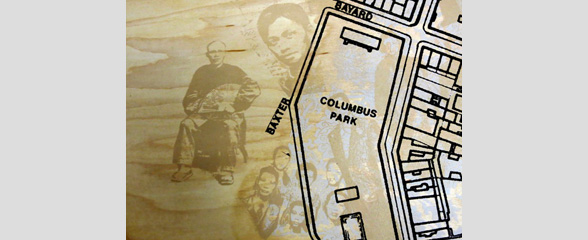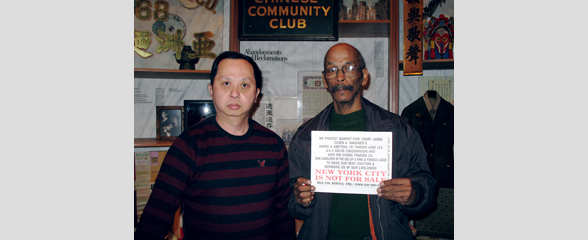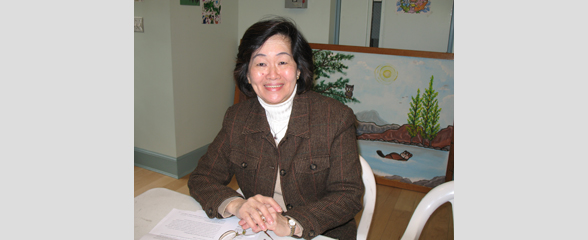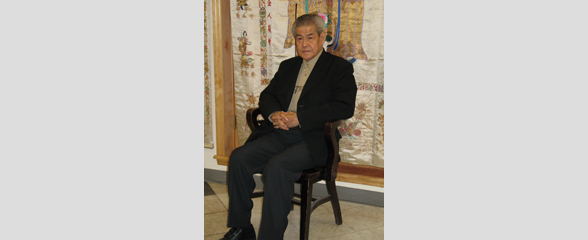Foreign workers

2008.040.003 Oral History Interview with Ching Yeh Chen February 6, 2008
Born in Chongqing, China and raised in Taiwan, Ching Yeh Chen came to the United States in 1971 to pursue a graduate and masters degree. Chen finally settled in New York and joined her husband operating a retail corporation, Pearl River Market, which was officially founded in 1980. Discussing the history of Pearl River, Chen explains that the corporation had been created to introduce the “real China†to the American society, since as Chen argues there was no significant relationship between the two countries at that time. Some of the challenges the company confronted included government suspicions, increasing rent prices, and an ever-changing customer base. Chen describes Chinatown as being a relatively unsafe environment during the seventies and eighties, which she believes began to change in 1990. She also describes both the rise of the American tourist clientele during the 1990s and the shrinking Chinese garment factory customer base. Finally, she predicts that after a decade, when their lease expires, Pearl River may fade away, as she and her husband will be reaching retirement age and the business will not be handed down to their children. Nonetheless, from her perspective, change is invaluable and Chinatown businesses and residents must be open to the neighborhood evolving – “that’s the challenge, that’s the pressure, that’s the fun.â€

2008.040.010 Oral History Interview with Han Ho Tran March 13, 2008
Mr. Tran emigrated from Vietnam and settled in Brooklyn, New York in 1990, three years after which he opened a family grocery business. Even though he had contracted a five-year lease that was projected to last until 2003, a new landlord took over the building in 1999 at which time Tran received an eviction notice. Ultimately, after seven years of successfully running his grocery business, Tran lost his grocery store—and with it his source of income—over a rent dispute. According to Tran and his attorney, he presented all necessary documentation in court to prove that he was leasing only one property space and had paid his monthly rent in a timely fashion. Unfortunately, Trans initial trial attorney specialized in criminal law not tenant and landlord disputes, and Tran was overruled after his new landlord produced two fraudulent documents which claimed that Tran had agreed to lease two property spaces and was thus deficient in one of the rent payments.
Tran was evicted and lost all of his business property and assets, which were confiscated by the new landlord. He has spent the last seven years fighting the case with little success. During his interview, Tran vocalizes his concerns regarding business closures, informing residents about their rights, and achieving a fair justice system. Tran believes this is a common situation in Chinatown today but that few are willing to fight as he has done.

2008.040.025 Oral History Interview with Connie Ling February 12, 2008
Connie Ling, born in the Philippines and later a resident of Hong Kong during the 1960s, summarizes her experiences emigrating with her husband from Hong Kong to New York in 1967. Ling initially lived and worked in Chinatown, where she found employment as a machine operator in a garment factory. During her ten years working for the garment industry, Ling recalls an influx of Chinese immigrants and substantial growth in industrial businesses. After serving as a factory chairwoman for several years, she was eventually recruited as a union representative for UNITE in 1982, speaking for workers rights and mediating conflicts between workers and employers. At the time of her interview, Ling estimated that there were only approximately 100 union garment factories left. She attributes this decrease to the aftermath of September 11th, which caused commercial rent to double and garment industries to outsource labor to Sri Lanka, Mexico, and China. Ling also talks about the gentrification in Chinatown, stating that new condominiums are replacing old shops and factories while rent inflation is forcing old residents to move out of Chinatown. She goes on to note the growth among the Fukienese and Puerto Rican immigrant populations in the Lower East Side and expresses discontent with the growing number of Caucasian residents in Chinatown. Ling concludes by reflecting on how Chinatown’s garment industry is not likely to return due to significant changes in manufacturing and rent.

2008.040.027 Oral History Interview with Sing Kong Wong February 8, 2008
After being petitioned by his wifes family, Sing Kong Wong, a former administrator for a government agency in China, immigrated to New York in 1980 where he worked as a presser in a garment factory. Wong illustrates the poor working conditions in the garment factories, commenting on the lack of sanitation, violations of workers rights, and inadequate benefits and welfare. He explains how the steady decline in the garment industry has been especially problematic for immigrant populations, as they are unable to find other jobs and have limited financial means to pay the rising rent. Wong believes that the decline in garment factories began with the U.S. legislation that permitted jobs to be outsourced to Mexico, China, and India. After the events of September 11th, the situation worsened as landlords demanded higher rent and as zoning changed residential areas to commercial and business spaces.
Wong mentions that as a way to remember his past life and to share important life lessons with future generations, he has photographed personal and historically significant subjects and occurrences relevant to his life and experiences. Such subjects include the harsh conditions in garment factories, life in Chinatown, and the events of September 11th. He continues to describe the changes in Chinatown occurring over the past thirty years, like the improving tolerance and relationships between ethnic and provincial groups and the greater appreciation for Chinese culture and traditions.
Finally, Wong elaborates on his views regarding gentrification, worrying that people with lower-incomes will suffer the consequences of uncontrolled rent prices, eviction, real estate development, and a poor job market. He suggests that the government should be more involved in maintaining the parks, providing more recreational programs for the community, and fixing local traffic problems. Wong asserts that progressive and proportionate improvements are necessary, but these improvements must serve all residents and not just the wealthy.